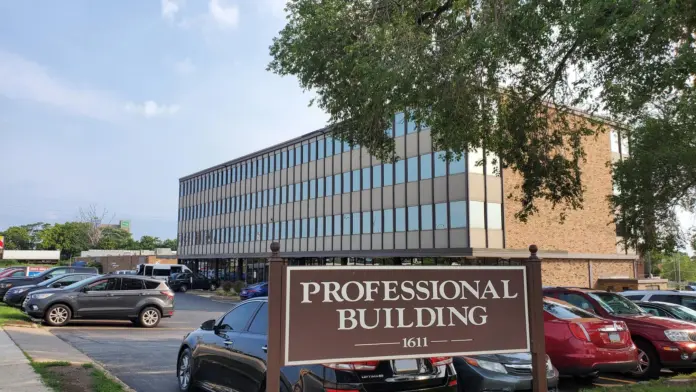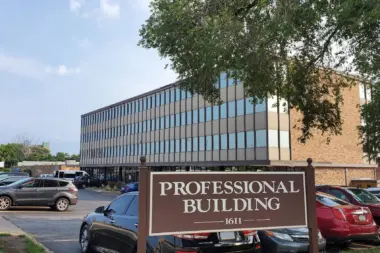I was a patient there for a year and I didn't feel comfortable with anyone that worked there. The office staff is extremely rude and treat you like your a lower form if life. Not professional at all! The doctors aren't any better. It was just not a good experience at all. I ...
About Accessible Recovery Services
Accessible Recovery Services was acquired by Crossroads Treatment Centers in 2018. Crossroads has many facilities, including the one in Erie, Pennsylvania. The Erie clinic offers medication assisted treatment (MAT) for clients with opioid use disorder (OUD). This is an outpatient clinic open seven days a week. They accept most commercial insurance, as well as Medicare, Medicaid and TRICARE. Additional treatment services include counseling for co-occurring mental health disorders.
The treatment clinic in Erie is near the shores of Lake Erie. It’s five miles from Presque Isle State Park, where you can go between clinic visits to enjoy the healing balm of nature and reflect on your treatment plan.
Coordinated Addiction Care in Erie, Pennsylvania
One of the nice things about this clinic is the instant intake and care coordination. Patient access specialists provide intake calls that are quick and simple and enable an immediate virtual visit during your first call.
You’ll speak with an intake coordinator who obtains your consent, checks your identification, and confirms your pharmacy and insurance. You’ll be scheduled for a followup visit at the clinic. If appropriate, you’ll end the virtual visit with a prescription that you can pick up at your preferred pharmacy.
Comprehensive Addiction Treatment Plans
You’ll have a care coordinator to help you with paperwork and coordinate your physical and mental health treatments. The MAT medications include methadone and Suboxone. They also offer injectables such as Sublocade, which you may be able to take just once a month, depending on your treatment plan.
Counseling helps you identify and address co-occurring mental health conditions contributing to your substance use. Through therapy, you’ll develop new coping skills and receive the guidance and support you need for long term recovery.
Their peer support specialists are people who have personal addiction experiences. They offer confidential guidance, motivation, support, and encouragement, and serve as accountability partners to clients in recovery.
A Variety of Social Services
The care coordinators work with clients to help with unmet social needs. These may include access to reduced cost or free food. Additionally, they help clients with transportation, housing, and other daily needs.
Latest Reviews
Rehab Score
Gallery


Other Forms of Payment
Private insurance refers to any kind of healthcare coverage that isn't from the state or federal government. This includes individual and family plans offered by an employer or purchased from the Insurance Marketplace. Every plan will have different requirements and out of pocket costs so be sure to get the full details before you start treatment.
Self-pay involves paying for treatment out of your own pocket. You can use savings or credit, get a personal loan, or receive help from family and friends to fund your treatment. If you don't have insurance or your insurance plan doesn't cover a specific program, self-pay can help ensure you still get the care you need.
Medicaid is a state based program that helps lower-income individuals and families pay for healthcare. Medicaid covers addiction treatment so those enrolled can use their coverage to pay for rehab. When a program accepts Medicaid the client often pays very little or nothing out of their own pocket.
Medicare is a federal program that provides health insurance for those 65 and older. It also serves people under 65 with chronic and disabling health challenges. To use Medicare for addiction treatment you need to find a program that accepts Medicare and is in network with your plan. Out of pocket costs and preauthorization requirements vary, so always check with your provider.
Addiction Treatments
Levels of Care
Outpatient Programs (OP) are for those seeking mental rehab or drug rehab, but who also stay at home every night. The main difference between outpatient treatment (OP) and intensive outpatient treatment (IOP) lies in the amount of hours the patient spends at the facility. Most of the time an outpatient program is designed for someone who has completed an inpatient stay and is looking to continue their growth in recovery. Outpatient is not meant to be the starting point, it is commonly referred to as aftercare.
Drug and alcohol addiction often takes a heavy toll on one's body. Over time, a physical dependence can develop, meaning the body physiologically needs the substance to function. Detox is the process of removing drugs and/or alcohol from the body, a process that can be lethal if mismanaged. Medical detox is done by licensed medical professionals who monitor vital signs and keep you safe, healthy, and as comfortable as possible as you go through detox and withdrawal.
Treatments
Opioid rehabs specialize in supporting those recovering from opioid addiction. They treat those suffering from addiction to illegal opioids like heroin, as well as prescription drugs like oxycodone. These centers typically combine both physical as well as mental and emotional support to help stop addiction. Physical support often includes medical detox and subsequent medical support (including medication), and mental support includes in-depth therapy to address the underlying causes of addiction.
Substance rehabs focus on helping individuals recover from substance abuse, including alcohol and drug addiction (both illegal and prescription drugs). They often include the opportunity to engage in both individual as well as group therapy.
Programs
Adult rehab programs include therapies tailored to each client's specific needs, goals, and recovery progress. They are tailored to the specific challenges adult clients may face, including family and work pressures and commitments. From inpatient and residential treatment to various levels of outpatient services, there are many options available. Some facilities also help adults work through co-occurring conditions, like anxiety, that can accompany addiction.
Young adulthood can be an exciting, yet difficult, time of transition. Individuals in their late teens to mid-20s face unique stressors related to school, jobs, families, and social circles, which can lead to a rise in substance use. Rehab centers with dedicated young adult programs will include activities and amenities that cater to this age group, with an emphasis on specialized counseling, peer socialization, and ongoing aftercare.
Clinical Services
Cognitive Behavioral Therapy (CBT) is a therapy modality that focuses on the relationship between one's thoughts, feelings, and behaviors. It is used to establish and allow for healthy responses to thoughts and feelings (instead of unhealthy responses, like using drugs or alcohol). CBT has been proven effective for recovering addicts of all kinds, and is used to strengthen a patient's own self-awareness and ability to self-regulate. CBT allows individuals to monitor their own emotional state, become more adept at communicating with others, and manage stress without needing to engage in substance abuse.
Group therapy is any therapeutic work that happens in a group (not one-on-one). There are a number of different group therapy modalities, including support groups, experiential therapy, psycho-education, and more. Group therapy involves treatment as well as processing interaction between group members.
In individual therapy, a patient meets one-on-one with a trained psychologist or counselor. Therapy is a pivotal part of effective substance abuse treatment, as it often covers root causes of addiction, including challenges faced by the patient in their social, family, and work/school life.
Amenities
-
Private Setting
Staff & Accreditations
Staff

Rupert McCormac IV, MD
Founder & CEO
Accreditations

The Substance Abuse and Mental Health Services Administration (SAMHSA) is a branch of the U.S. Department of Health and Human Services. Established in 1992 by congress, SAMHSA's mission is to reduce the impact of substance abuse and mental illness on American's communities.
SAMHSA Listed: Yes
Contact Information
1611 Peach Street
# 315
Erie, PA 16501